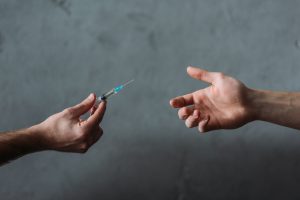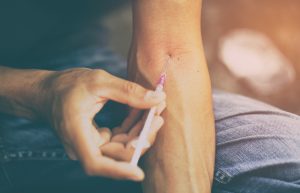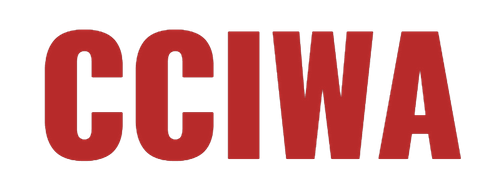The road to recovery from drug addiction can be pretty long and daunting. Even after achieving sobriety, it can still be incredibly difficult to stay away from the old habits that led to addiction. Besides denying your body the physical sensations it had been accustomed to, the pressure to remain sober and focus on other things in life can be overwhelming.
That alone is enough to drive you back to substance abuse. Unfortunately, there is no easy way of staying sober. You have to dedicate your effort and mind to the recovery course to avoid relapsing.
Taking time to develop a comprehensive relapse prevention plan can boost your recovery journey massively and ensure you don’t lose the sobriety that you have worked so hard to achieve.
Read on to learn more about a relapse prevention plan and how you can develop one for yourself or a loved one.
What Is Relapse?
In simple terms, relapse is a setback that happens when a person recovering from drug addiction reverts to behaviors and lifestyles they are trying to run away from.
Although relapse is always seen as part and parcel of the recovery process, it can still be quite dangerous if nothing is done about it. Typically, if a person relapses and starts abusing the same substance at the same rate as before, chances of overdosing and never resuming the recovery journey are pretty high.

This is because their tolerance may have decreased when they have been in recovery, and using the substance at the same rate can be fatal.
The National Institute on Drug Abuse says that the first line of treating someone who has relapsed should be Medication-Assisted Therapy (MAT). Once MAT has been administered, the recovery is then supported by either psychiatry or counseling.
What Is a Relapse Prevention Plan?
A relapse prevention plan refers to a series of steps and strategies created to help a recovering person from spiraling down to relapse by intervening at the most critical moments of their recovery.
Depending on what works for the patient, the relapse prevention plan can encompass detailed plans, written outlines, or a simple verbal techniques.
The most critical thing is to ensure that the patient is fully prepared to adhere to the plan and embrace the tools needed to help them stay sober.
Before creating a relapse prevention plan, you need to understand what relapse is and how it works.
Steps to Creating an Effective Relapse Prevention Plan
Even though you can create a relapse prevention plan on your own, it is highly recommended you walk through the entire process with someone who knows about drug addiction, such as a substance abuse counselor.
You can create a verbal plan, but it is always good to write down the steps you need to take should you feel like you are relapsing.
Regardless of what you choose, a good relapse prevention plan will have the following elements:
1. Assess Your History with Drug Substances and Alcohol
Some of the critical questions you need to ask yourself when creating your plan include:
- Was there a certain period you were more prone to substance or alcohol abuse?
- Were they some people that pushed you into that direction?
- What thought patterns make you more likely to abuse drug substances?
- Have you relapsed before? If yes, why did it happen?
If you can answer these questions candidly, you will be on the right path to developing an effective plan. The bottom line is to establish what caused your past relapse and avoid the things you identify as much as possible.
2. Know Your Triggers
Once you have assessed your history with drugs and alcohol, the next step is knowing yourself and allowing your loved ones to know you as well. The truth is that each person has different triggers that might cause them to relapse.
Typically, your triggers will arouse your craving for drugs and push you towards relapse. This can be the people you used to hang out with, being in the presence of drugs, or even the locations you formerly used to take the drugs from.

Triggers can also refer to events that are more likely to make you feel emotionally imbalanced and more susceptible to emotional relapse. For instance, if you spend a lot of time interacting with negative people who stress you, the chances of a relapse occurring are pretty high.
Sometimes, the withdrawal symptoms themselves can be unpleasant, triggering you to go back to your old behaviors in the process. Try to avoid your triggers as much as possible and maintain a healthy mindset to achieve your recovery goal.
3. Take Care of Yourself
Many people who struggle with drug addiction often don’t take good care of themselves. In fact, most of them are driven to substance abuse by stress and other life challenges.
But, you are less likely to relapse if you start taking good care of yourself and appreciating the fact that you deserve better. In most cases, self-care is the most overlooked aspect of recovery.
One thing we must mention is that self-care is unique for every person. Therefore, what works for someone else may not work for you.
However, some general ways to take care of yourself include eating a balanced diet, having enough sleep, improving your grooming habits, incorporating mind-body relaxing practices in your daily routine, and finding hobbies that make you happy.
4. Don’t Be Afraid to Ask Your Friends and Loved Ones for Help
With the ongoing pandemic and a wide range of other changes worldwide, mental health is now a priority for many people.
Mental health is an even bigger priority for individuals trying to quit drug addiction and stay sober. Typically, if your mental health is depleting, then it could cause a relapse.
Therefore, you should never be afraid to call upon non-toxic friends and family members if you need help. You aren’t a burden if you are trying to make your life better, but you will be a huge burden if you relapse.

If they genuinely care about you and want you to stay sober, they will do everything they can to help you. Reach out to them whenever you feel like struggling to cope up with a recovery plan and share with them the challenges you may be encountering.
If you don’t want to speak with your friends and family, don’t be afraid to enroll in an addiction treatment program where you can talk to professionals. The bottom line is to ensure you get help whenever you need it.
5. Learn About Healthy Coping Mechanisms
Take time to compile a comprehensive list of coping mechanisms that have been helpful in your recovery journey. Think about what you could do instead of turning to drugs when you are bored. If you can’t figure out anything meaningful, talk to a therapist or psychiatrist to help you.
In most cases, cravings last between 15-30 minutes, and if you don’t have anything to do when they hit, your chances of relapsing will be quite high. During this time, you need to find something that can occupy your mind and make things easier.
Some of the things you can do include playing music, writing a gratitude list, watching your favorite movie, exercising, or journaling.
6. Plan for the Worst
Although this may sound a little bit pessimistic, the truth is that you don’t want to be stuck in a dark world should you relapse. If you fail to plan, you won’t know what to do when the dark moment hits.
Therefore, it is critical to write down a step-by-step guide detailing what you will do if you relapse. Include a list of people you can talk to about your situation.

The people you include in your list should be reliable and trustworthy individuals who are already familiar with your sobriety goals. Review your plan for relapse with them and even discuss with them what they can do to help you get back on track should you reach an unexpected point.
They need to know how they can help you get back into an inpatient treatment program or even give you a free ride to your therapy session. The most important thing is to ensure that everyone on your list is okay with helping you when the need arises.
The Bottom Line
A relapse prevention plan is an essential part of every drug addiction treatment program. At CCIWA, we appreciate that recovery from opioid addiction isn’t a straight line, and patients will inevitably face many challenges along the way.
That is why we have embraced an evidence-based approach to treating opioid misuse disorder patients and help them achieve their recovery goals. Our experienced doctors are always ready to hold your hand and guide you through every step of the way.
Contact us today to begin your journey towards sustainable sobriety.



